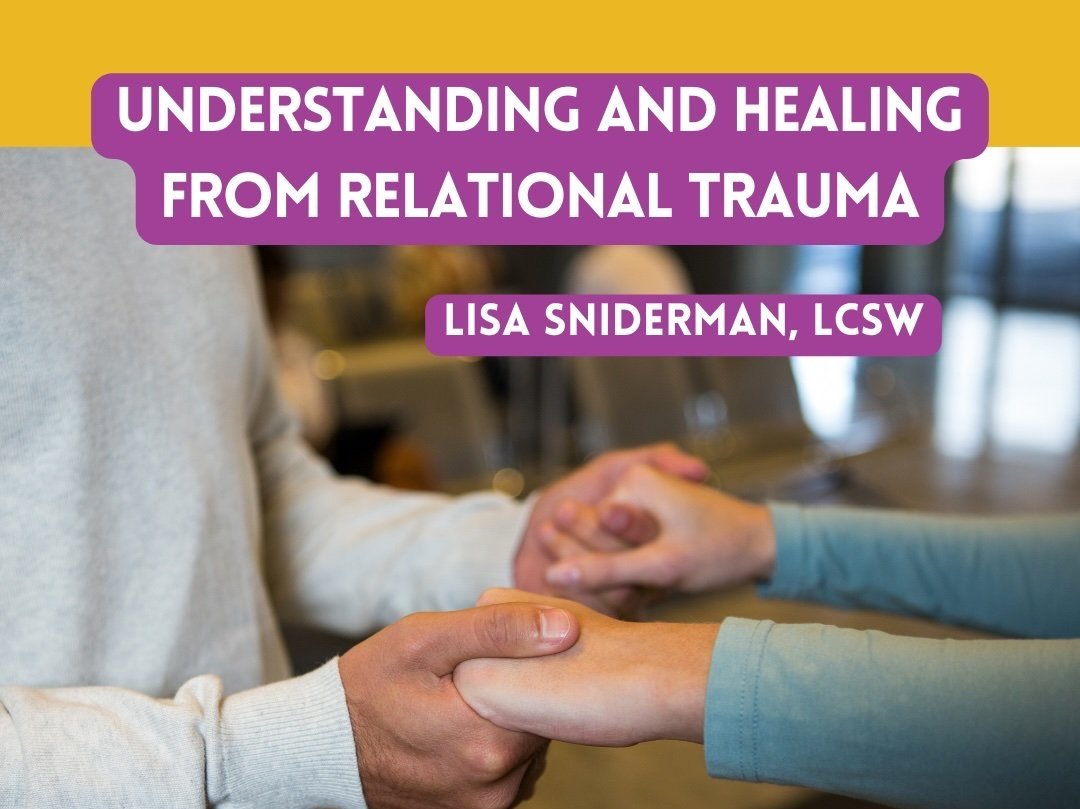Lisa Sniderman, LCSW
Licensed Clinical Social Worker
Pronouns: she/her
Email: lsniderman@balancedawakening.com
Direct: 630-277-9002
accepting New Clients
Availability and Scheduling:
Ms. Sniderman sees clients online over video (telehealth) Monday through Friday. She also sees clients in-person at our 5215 N Ravenswood Ave (Andersonville) location on Tuesdays & Wednesdays. Ms. Sniderman currently has limited availability for new clients. If you’re interested in working with her, you may schedule your first session below!
Welcome to therapy! I love doing this work. I’ve seen people from all walks of life. Those who go to therapy tend to be self-aware and empathic. They are attuned to injustice and the needs of others, sometimes excessively. They struggle with problems like low self-esteem, anxiety, unresolved grief or anger, and self-sabotage.
My clients have often tried to fix what they think is “wrong” about them. They’ve tried to be grateful, think positive, let it go already—and so on. Therapy helps you get out of your head and into your heart, intuition, and deep wisdom. That’s where the real relief comes.
Therapy is a unique relationship that is warm, safe, and predictable. It’s different than talking to a friend, because you don’t need to manage my response or my feelings. You can open up at your own speed without judgment or unwanted advice. I make suggestions sometimes, but I don’t tell you what to do.
In most cases, therapy includes understanding your childhood better, as well as past relationships. I am especially interested in family dynamics and the roles each member plays (golden child, black sheep, good parent/bad parent, etc). I work with many folks who are affected by a loved one’s addiction or mental illness, too. Exploring the past in therapy can help you get unstuck. Patterns can change, slowly but surely.
I recently became a certified breathwork healer, in the style of David Elliott. I’m excited to offer this experience to my clients! Breathwork is a somatic (body-based) therapy that works together with talk therapy. It combines a rhythmic breath with music and spoken words. The breath helps you bypass your intellect, get back into your body, work through emotions, and experience more self-love. If you’re interested, we can discuss bringing breathwork into therapy sessions.
My work also includes strategies drawn from internal family systems, dialectical behavior therapy, acceptance and commitment therapy, psychodynamic theory, polyvagal theory, and mindfulness training.
My specialties include the treatment of anxiety; depression; grief; low self-esteem; parenting concerns (I’m a mom too); unhelpful relationship patterns; issues of midlife and older age; and family-of-origin issues like intergenerational trauma, conflicts, and estrangements.
Experience
I’ve been in the mental-health field since 2003, licensed as an LCSW since 2005. Before joining Balanced Awakening, I worked in community mental health. My past experience includes crisis intervention; intensive treatment for those with chronic mental illness; participation in research studies as a clinician; and most recently, psychotherapy for adults with a wide range of problems.
THERAPIST SPECIALITIES
Depression & Grief
Anxiety & Panic
Low Self-Esteem
Breathwork
Parenting Challenges, including Kids with Disabilities
Midlife, Menopause, Older Age
Family-of-Origin Concerns
Patterns of Unhealthy Relationships
Adult Children of Parents with Addictions or Mental Illness
Client focus
Adults
Young Adults (18+)
Midlife & Menopausal Women
Parents
Location
Telehealth (IL)
Insurance Accepted
BCBS PPO
Blue Choice PPO
Aetna
Licensure
Licensed Clinical Social Worker, IL, 149.011739
Education (educación)
M.A., Clinical Social Work, 2003, University of Chicago
B.A., Journalism, 1996, Northwestern University
Somatic Breathwork to Support Your Healing
In sessions, Lisa offers brief guided somatic breathwork to help you move out of overthinking and back into your body. This active breathing technique helps restore clarity, ease, and emotional steadiness—enhancing the work you do together in talk therapy.
Understanding Trauma and the Patterns That Shape You
Lisa brings a grounded, trauma-informed lens to therapy, helping you make sense of the emotional and behavioral patterns that feel hard to change. She draws on mind-body understanding to explore why certain responses—like difficulty setting boundaries or returning to old habits—may be showing up. Whether you're navigating significant challenges or everyday stresses, Lisa supports you in going deeper, uncovering what’s underneath, and creating space for new ways of being.




